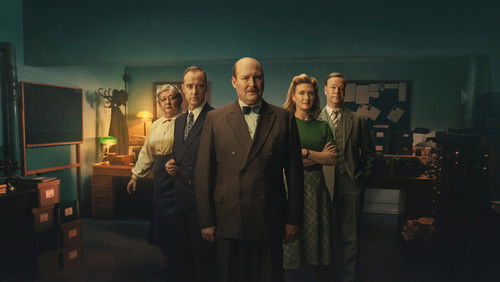Caracas (2024)
32KCaracas (2024). 1h 50m
“u0026quot;Caracasu0026quot; by Marco Du0026#39;Amore is a film that attempts to explore the multifaceted aspects of a Naples marked by deep contradictions and social tensions. Set in an abandoned and dilapidated city, the film follows the intertwined lives of various characters struggling to survive in a context of violence, corruption, and despair. Du0026#39;Amore, in his fourth directorial effort, offers a penetrating look at a reality often superficially portrayed by international media, but he does not always manage to maintain the narrative coherence necessary for a work of such ambition. The film opens with a series of powerful images that capture the decaying beauty of Naples: dilapidated skyscrapers, chaotic streets, and improvised markets, all photographed with meticulous attention to detail. Stefano Meloniu0026#39;s cinematography is one of the filmu0026#39;s strengths, making the oppressive and vibrant atmosphere of the city tangible. Light and shadow are masterfully used to emphasize the contrast between hope and despair that permeates the protagonistsu0026#39; lives. However, the visual beauty of the film does not always manage to compensate for its narrative shortcomings. The screenplay, written by Du0026#39;Amore himself along with Francesco Ghiaccio, is ambitious but at times scattered. The film introduces a plethora of characters, each with their own story and emotional baggage, but struggles to give each one enough space to fully develop. This leads to a fragmentation of the narrative that can be disorienting for the viewer. Some characters and subplots are abandoned or resolved hastily, leaving a sense of incompleteness. The actorsu0026#39; performances are generally solid. Toni Servillo, in the role of Giordano Fonte, delivers an intense and touching performance, embodying the character with an emotional depth that makes his narrative arc believable and engaging. Marco Du0026#39;Amore, who plays Caracas, manages to convey the complexity of a man torn between extreme ideologies and a search for redemption through conversion to Islam. Lina Camelia Lumbroso, as Yasmina, offers a raw and sincere performance that captures the struggles of an addict trapped in the cityu0026#39;s alleys. Despite these high-level performances, the film suffers from an uneven pace. u0026quot;Caracasu0026quot; oscillates between moments of intense tension and reflective pauses that, although well-executed individually, do not always blend into a harmonious narrative flow. This can create a discontinuity that prevents the viewer from fully immersing themselves in the story. Additionally, the film sometimes gets lost in aesthetic digressions that, while visually fascinating, further slow the plotu0026#39;s progression. The soundtrack, composed by Rodrigo Du0026#39;Erasmo, deserves mention for its ability to capture the essence of the city. The musical tracks, ranging from traditional Neapolitan music to urban rap, help create a soundscape that reflects Naplesu0026#39; cultural diversity. However, like the rest of the film, the soundtrack also suffers from a lack of coherence, with some tracks feeling out of place compared to the overall tone of the scenes in which they are used. Ultimately, u0026quot;Caracasu0026quot; is a film that, despite its ambitions and some elements of great value, does not fully achieve its potential. Du0026#39;Amoreu0026#39;s direction and the castu0026#39;s performances are commendable, but the fragmented narrative and uneven pace prevent the film from being completely engaging. However, for those interested in a complex and multifaceted portrait of Naples, u0026quot;Caracasu0026quot; offers reflections and moments of intense visual beauty that are worth seeing.”









